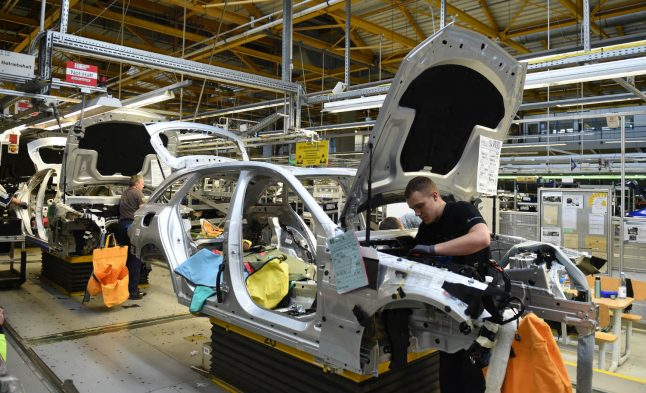Overall, December brought a 0.2-percent month-on-month fall in industrial employment to just under 5.7 million, federal statistics authority Destatis said in preliminary figures.
That was the first ebb since December 2010.
At 1.1 percent, the contraction was much sharper in the car industry, Germany's second-largest employer after machine tool making.
Several major carmakers including Volkswagen and Daimler have announced thousands of job cuts for the coming years.
The industry has for years battled to escape the after-effects of the “dieselgate” emissions cheating scandal that broke over VW in 2015 and has since spread to other manufacturers.
READ ALSO:
Meanwhile a forecast for the number of cars set to roll off German production lines this year showed the figure at a 22-year low of 4.67 million.
“The fall in car production means Germany continues to lose significance in the global auto industry,” said study author Ferdinand Dudenhöffer of the Center Automotive Research.
Around the world, car markets have been battered by the effects of the American trade conflict with China.
“In a simple image, Donald Trump is putting workers in the German car industry on shorter hours,” Dudenhoeffer said.
But structural reasons are also behind falling output in Germany.
Where in 1998 close to 12 percent of all cars sold worldwide were produced in Europe's powerhouse, the share has shrunk to below six percent this year, Dudenhöffer said.
Germany's share of production has contracted as the country's powerful car manufacturers have grown their operations abroad, he added.
That makes Germany more dependent than ever on good trading relations, especially with China, Dudenhöffer said.
The expert also forecast that German car production would begin growing again in 2021 after bottoming out next year.



 Please whitelist us to continue reading.
Please whitelist us to continue reading.
Member comments